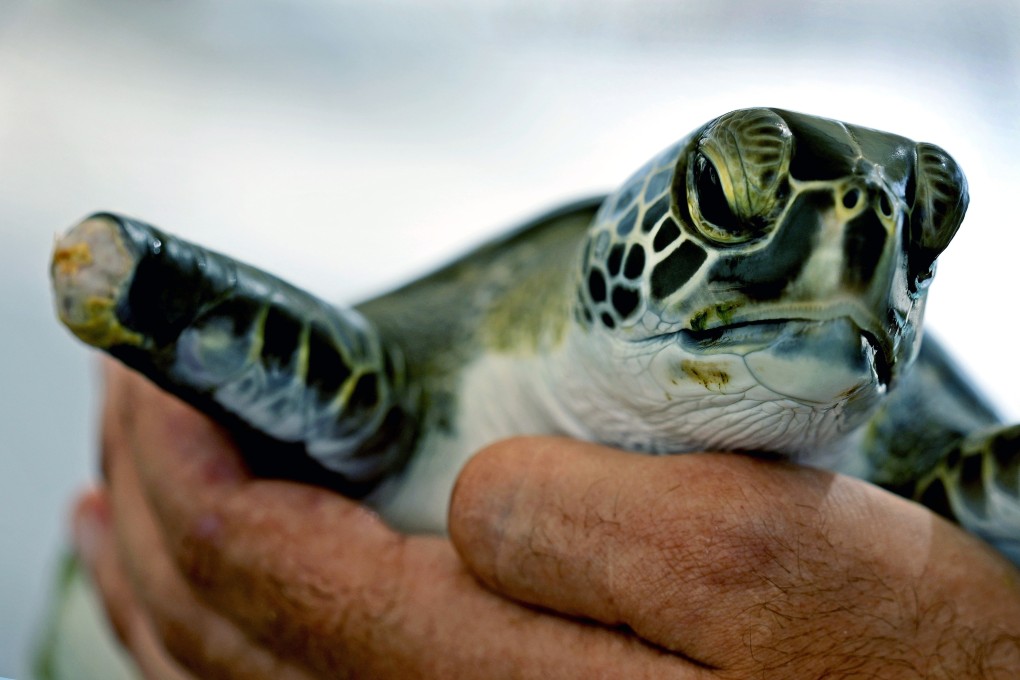Failure to prosecute Japan turtle killers may embolden culprits, activists say
- Dozens of green sea turtles were found dead or dying last week with stab wounds on their necks on a beach in Kumejima island in Okinawa Prefecture
- One fisherman told local media he and other boat operators ‘had to stab’ dozens of turtles to cut them out of their nets after they became entangled

An environmental activist is calling on police in Okinawa Prefecture to take action against the fishermen who recently killed at least 30 endangered green sea turtles on the grounds that failure to follow through with a prosecution will be interpreted elsewhere as tacit approval for assaults on Japan’s rare flora and fauna.
Police on the remote island of Kumejima, around 100km west of the main island of Okinawa, are questioning local fishermen and residents after dozens of turtles were found dead or dying off a beach. Most of the turtles had obvious stab wounds to their necks and flippers.
Experts at the island’s Sea Turtle Museum told local media that the shelving beach where the turtles were discovered is a well-known feeding ground for the creatures, which are listed as threatened with extinction by Japan’s Environment Ministry.
“Many of the turtles appeared to be dead,” an official told the Asahi newspaper. “I have never seen anything like this before. It is extremely difficult to process this.”
The Ryukyu Shimpo newspaper quoted a local fisherman as saying that there are an unusually high number of turtles in nearby waters this year and that they are consuming the seaweed that is a prized and lucrative export from the island. The turtles are also damaging the offshore habitats of other marine life and damaging fishermen’s gill nets.